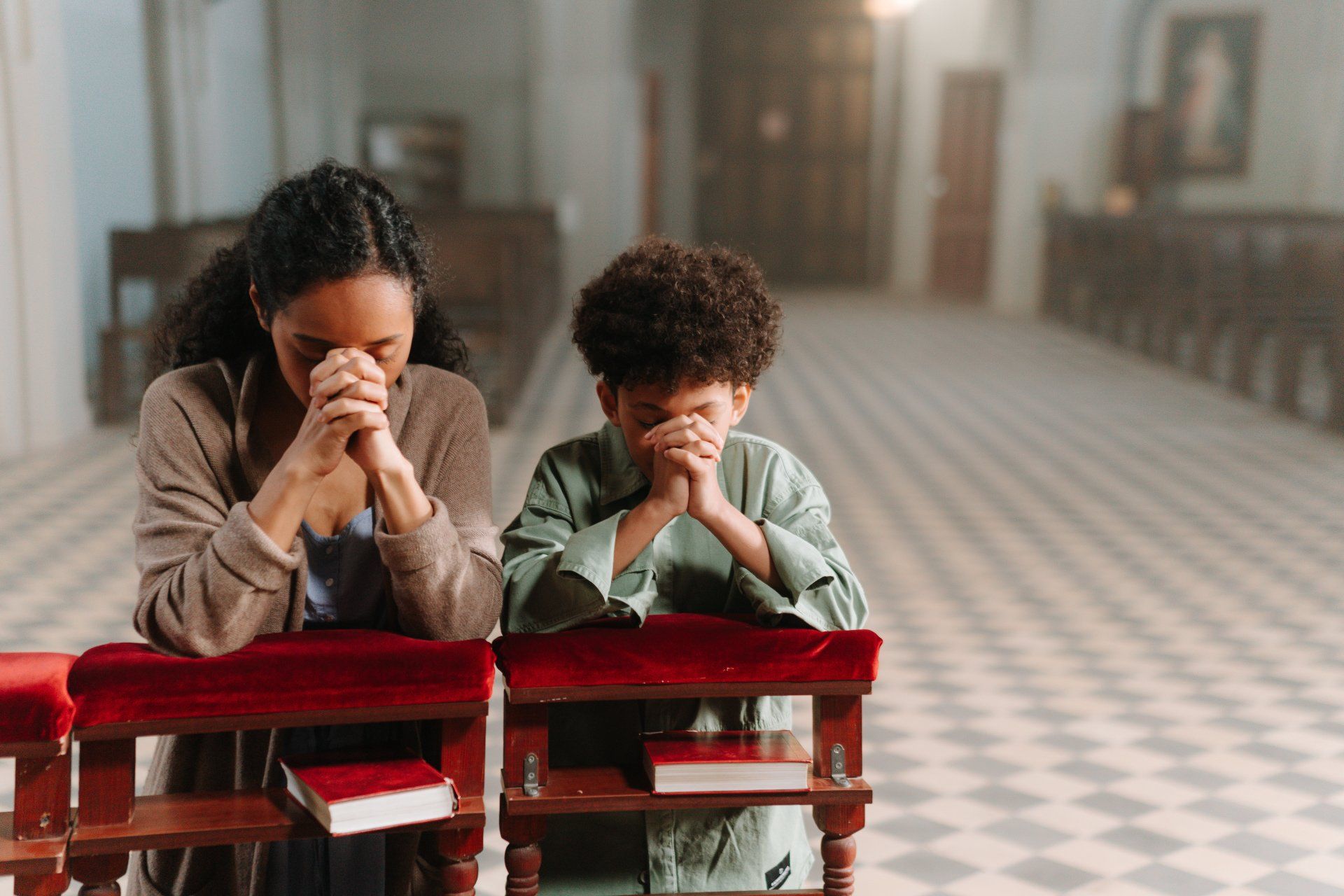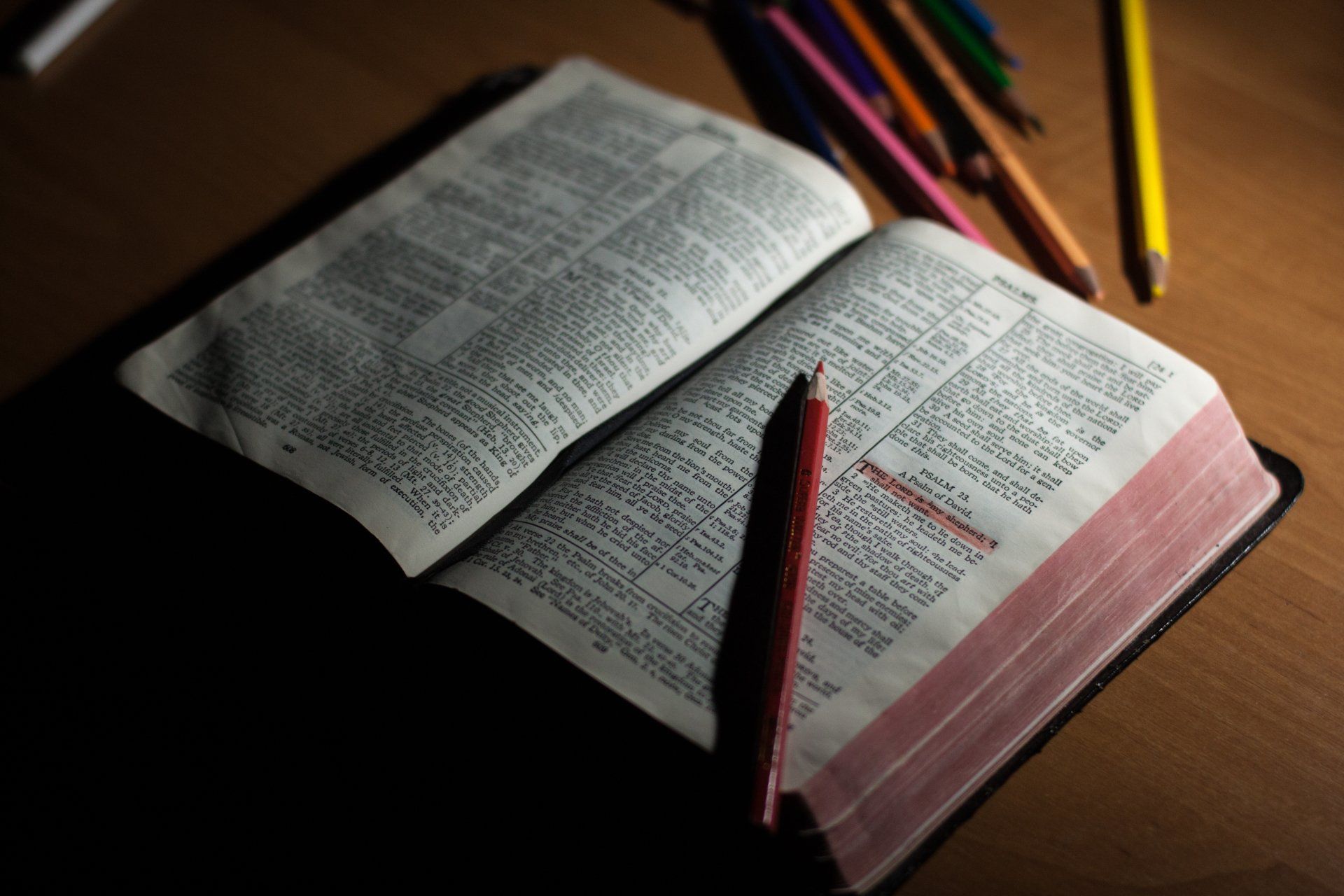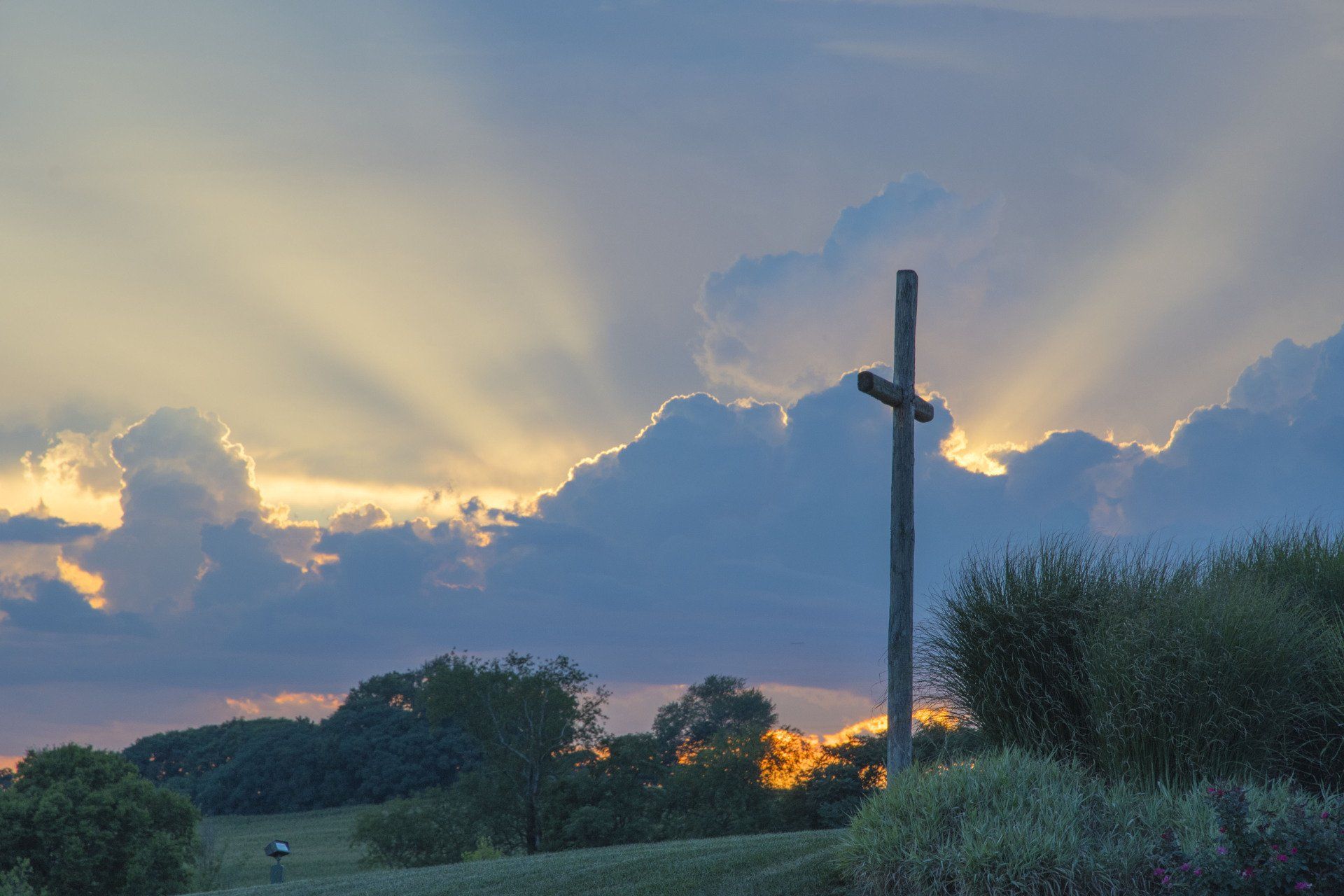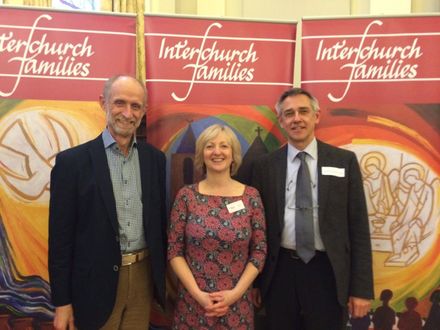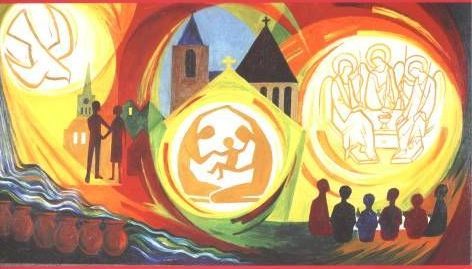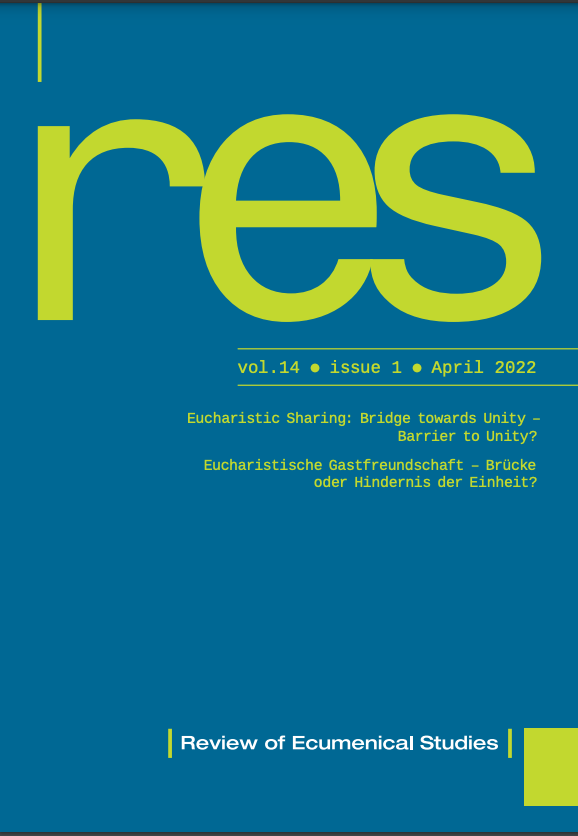By Webmaster
•
03 Aug, 2023
Mixed Marriages and Receptive Ecumenism: A Meeting of Gifts Fifth Conference on Receptive Ecumenism Sigtuna, Sweden, 27-29 June 2022 Mixed Marriages and Receptive Ecumenism: A Meeting of Gifts It’s a privilege and joy to gather with competent people enthusiastic for the work of Receptive Ecumenism, people who are committed to seeking out, listening to, and learning from the gift others, people who are members of churches from which our own is estranged, bring to the Body of Christ. It’s a privilege and joy for which I give thanks. And yet, I am going to take a risk, and encourage you all to leave here, and go home. I hope, however, that you will stay around at least long enough to allow me to explain. In the process, I hope I won’t put you to sleep with facts and figures before coming to the heart of the matter. So, what am I going to talk about? I will talk about the research I have done, and the data it provided. I will then talk about what I will argue it reveals, evidence of rich ecumenical resource. Research I conducted two research projects within the Catholic Church. One was in Canada, one in Australia, seeking evidence on the prevalence of Mixed Religion marriages, within which reside that subset known as Interchurch Families. In this, two categories come into play. One is known as Disparity of Cult, the other known as Mixed Religion. Disparity of Cult refers to a marriage between a Catholic and a person who is not baptized. That person could be of deep faith, e.g. a faithful Jew, Muslim, Buddhist, etc., or a person of no faith at all. The issue is not faith, but baptism. Mixed Religion marriages, as understood in Catholic parlance, are marriages in which the spouses are both baptized, but come from two different Christian traditions. [1] Interchurch marriages are a subset of those same couples, usually involving a Catholic, who intentionally worship together in both churches to the extent they are able, and raise their children within both traditions. In my research, I drew on evidence both from civil society, and from the Catholic Church. So, what did this research reveal? First, from civil society. Civil Society In Canada, indications are that there are more marriages in which a Catholic is married to a person of another Christian tradition than there are marriages between two Catholics. I want to reiterate that statement. In Canada, there are more married couples in which a Catholic is married to a person of another Christian tradition than there are between two Catholics. In Australia, it is slightly lower, with the Australian Bureau of Statistics 2016 census showing that some 35.1% of all marriages involving a Catholic are Mixed Religion, where one spouse is Catholic and the other of another Christian tradition. I believe the data for the m ost recent UK census will be made available in October, and look forward to seeing it. Church Now, how does this compare with Church data? As we will see, is very different. In Canada, the Church shows Mixed Religion marriages accounting for only some 11% of marriages. Disparity of Cult accounts for a similar 10-11%, with some 74% being between two Catholics. In Australia, the Church shows Mixed Religion marriages accounting for only 8.7% of marriages, Disparity of Cult at 9.5%. Clearly the information the Church gathers is very different from that gathered in civil society. Why might this be so? In conducting the research, I contacted the bishop of every Catholic diocese in Canada and Australia, asking for data from their dioceses on three distinct elements. These were the number of marriages in their diocese in which were between two Catholics, the number Mixed Religion marriages, and the number of Disparity of Cult marriages. In Canada, I asked for data from the years 2015-2017. In Australia, because I had concrete data from the Australian Bureau of Statistics 2016 census, I asked for information from that year alone. The bishops of both countries were very generous in their response, as can be seen from their responses. In such surveys, one would normally be content to have responses from more than 20% of those canvassed. In Canada, 42 responses were received, being some 59% of dioceses. Significantly, they represented some 81% of all Catholics. In Australia, the percentages were slightly lower, but still a sign of great generosity, indicating again that the issue being researched was of real importance to them. I am very grateful to the bishops and their staff. Comparing the data from civil society to that from the dioceses, what important issues stand out? Firstly, of course, is that not all marriages recorded in civil society take place in the Church, to be recorded there. The Church, as institution, doesn’t know about them. And that has pastoral implications. Secondly, in Canada, some 20% of responding dioceses were unable to provide data which differentiated between Mixed Religion and Disparity of Cult. In Australia, this increased to 38.5% of responding dioceses. In those responses, both marriage categories were gathered as one group. In short, while they knew such marriages were happening, they did not gather the relevant data from their parishes, and so could not state the size of the cohort of such marriages. What are some of the implications of this? Without certainty as to the reasons for such amalgamation, one cannot help but wonder if it indicates an understanding, however unintentional, that the only person of concern here is the Catholic spouse; not the Christian of another tradition, not the unbaptized person, not even the one made so by God in marriage. If true, albeit completely unintentional, this would be a most unfortunate situation, one which simply bringing the reality to the dioceses’ attention may be sufficient to have rectified. I do not directly fault the bishops. The simple fact is that, in the annual gathering of data on marriages from around the world, Rome does not request differentiation. That differentiation is a country-by-country, or even diocese by diocese, decision. Okay, enough of the statistics. How does all this information relate to real life? With no requirement to provide the differentiated information, many dioceses do not gather it. The result is that the Church does not know the size of the cohort in its midst containing the seeds of lived ecumenism, cannot call it forward to live its gift to the churches and the Church. Instead, where there is a perception of such presence, the most common response appears to be to ‘run an RCIA’, the Rite of Christian Initiation of Adults. Please understand: I believe the RCIA is a rich pedagogical tool for introducing non-Christians to Christ and the Church. But it is being used, I suggest, to solve ‘our’ problem of discomfort with the presence of faithful Christians of other traditions in our midst, people who are one with us through baptism and marriage, and who live in their lives the joys and difficulties of the path to Christian unity. And, as we can see from the civil society data, the cohort involved is very large indeed. Whenever such a large cohort exists within any body, ecclesial or secular, the question should be asked as to whether this cohort represents a problem to be solved and/or a gift to be received. Some believe it is a problem, saying that “intermarriage undermine[s] the old loyalties.” [2] Yet this ‘problem’ has also become one of the largest ‘sources’ of growth in the number of Catholics worshipping in our churches. Even if it may feel like a problem, then, it is also a possibility of growth potential, and should be treated seriously as a result. Is there another reason to treat this as an opportunity? I argue that we are dealing with a huge opportunity, the opportunity to learn from such couples how to live the receptive ecumenism required for us to move toward Christian unity. Why do I suggest that? These couples are faced, week by week, with the reality of estrangement between their churches. Indeed, it seems at times that, rather than encouraging their conjugal union, their churches will impose on them the estrangement the churches themselves live, an estrangement the churches at times hold on to as points of church definition. And yet, these marriages survive. This survival is, I suggest, evidence of a gift given by God to his Church in its various forms, for the healing of the disunity which has developed and we, at times, cling to. What gift might this be? What resources might they have and bring, which can be gift to their churches and, through their churches, to the whole Body of Christ – including us? For these marriages to survive, and especially if they are to thrive, the spouses must develop a capacity to listen to each other, to receive from each other, and to celebrate, the gift of faith, and the form of that faith, which each brings to their marriage. They must learn, as the late Dr Ruth Reardon said, to “affirm the psychological equality within their marriage of the two church communities that are represented within it.” [3] They must learn to hold in their marriage the two different and mutually estranged traditions from which they come, and which have given them life, and together to form a way of reconciling the religious estrangements which those traditions have lived for generations, perhaps centuries. This capacity to receive, to hold, to reconcile and to celebrate differences is a resource which our churches desperately need if they and we are to learn to reconcile the estrangements that exist between them. How might we distinguish some of these capacities in order to see them more clearly, more easily call them forth? We may begin with the capacity to look first at what we find attractive in the other. Is there something in the way this person lives his/her faith which reflects that which is best within ourselves? What is that, and how might it encourage and support the life of faith we find living in us? That, of course, is the easy part. The next question, equally vital, is this: what do we find attractive in the other which is different, which we find in some way calls us to be more, completes us even as we may find it challenging our assumptions, our ways of living? This question is far more challenging, as it calls us to look closely at the differences, notas something to be avoided, or something to be changed, done away with, but something to be explored, its richness and beauty, its gift, teased out, called forth. In short, how can that person’s faith be encouraged to grow, both for that person’s good and for our own as well? Again, how do the parents in interchurch families not only live fully their own form of faith, but encourage their spouses to live fully their form of faith, seeing each as gift of and for the other? How do such parents encourage and enable their spouse to share their faith with their children so that, while the parents carry two Christian traditions within their marriage, their children begin to carry the two traditions within their body – and do so with grace? If we can seek out and approach these families with humility, not to let them know how they are to live, or to have them change religious affiliation, but to walk with them in order to receive and learn from them, I suggest they will become more aware of, be strengthened in, and more able to share more widely, the gift of unity they have been given in their marriage. I suggest, too, that their gift, strengthened by our walking with them in that exploration and development, will call forth and strengthen the work of ecumenism within us, and at all levels of the Church. I further suggest that, if our dioceses can begin to record and gather the annual data on mixed-religion marriages, and develop means to reach out to them to receive their gift, we will come to know more fully, and be able to draw on, the gift which presently flies below the radar of our churches. There is another aspect, which flows from the fact some of these marriages have not been recorded in the Church. Indeed, these couples may not be participating in religious activities in any church. The Church, as institution, doesn’t know who or where they are. Yet these people have enough of a personal connection with the Church that they have identified themselves with a particular faith cohort. And we, as members of civil society, know them, through day care, work, sports gatherings, shopping, and more. It is therefore for us, as members of our churches, to seek out these families, call them forth, learn from them. And so, I return to the beginning, encouraging you to go home. I do so, not because I think you are wasting your time here, or that I don’t want us to spend time together. Far from it. I do so to invite and encourage you to go back to your roots, there to exercise your gift, calling forth within yourselves, all the competence and passion of which you are capable, the very gift that you are, in the midst of your brothers and sisters of various Christian traditions. Seek out people married across denominational lines. Encourage them to tell their stories, discovering in the process their own gift which they, in living in their marriages the joys and difficulties of the path to Christian unity, contribute to their churches and the Church. Encourage your ecclesial bodies to record the data on such married couples, not as problems to be solved, but as opportunity to be joyously lived. As Pope Francis says, ideas must come from experience. [4] Experience the mixed religion and fully interchurch families in your community. Then let your ideas flow from that experience. Go home, and be gift. Ray Temmerman STM Ray Temmerman (Catholic) is active in the Interchurch Families International Network (IFIN). Ray operates the interchurch families website, http://interchurchfamilies.org as well as an interchurch families international discussion group. Together with his wife Fenella (Anglican), they worship and are active in both their churches, letting their unity in faith bring awareness to their churches, and healing of estrangement to the Body of Christ. [1] Mixed marriages: DISPENSATION FROM CANONICAL FORM (part 1), https://cbcpnews.net/cbcpnews/mixed-marriages-dispensation-from-canonical-form-part-1/ [2] Paul Baumann, “Don’t Invite the Theologians: Is Tom Reese right about what ails the Church?” in La Croix International, 1 June 2022, https://international.la-croix.com/news/religion/dont-invite-the-theologians/16171 accessed 1 June 2022. [3] R. Reardon, No Blueprint, in The Journal, Vol 9, No 1, 2001, http://interchurchfamilies.org/journal/pdf/2001V09N01January.pdf [4] Antonio Spadario SJ, “Pope Francis in Conversation with the Editors of European Jesuit Journals” in La Civilta Cattolica, 14 June 2022, https://www.laciviltacattolica.com/pope-francis-in-conversation-european-jesuit-journals/ Hits: 352
